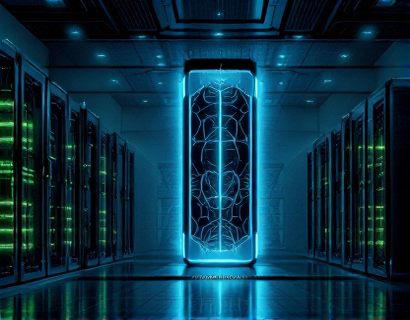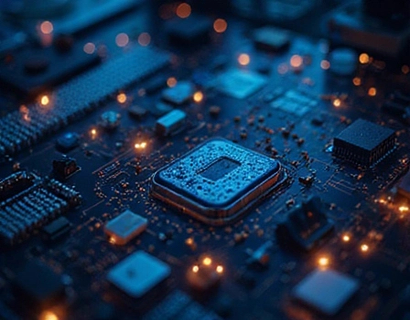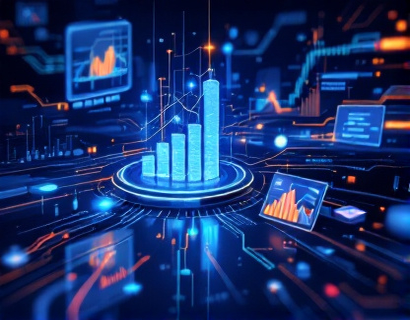Blockchain-Enhanced Registry Software: Revolutionizing Data Management with Security, Transparency, and Efficiency
In the rapidly evolving landscape of data management, the integration of blockchain technology has emerged as a transformative force, offering unparalleled security, transparency, and efficiency. This article delves into the profound impact of blockchain-enabled registry software, designed to revolutionize how professionals and enthusiasts approach data management. By leveraging the inherent properties of blockchain, such as immutability and decentralization, this software not only streamlines registry processes but also builds trust and accountability across various sectors.
Understanding Blockchain Technology in Registry Management
To fully appreciate the benefits of blockchain-enhanced registry software, it is essential to understand the fundamental principles of blockchain technology. At its core, a blockchain is a distributed ledger that records transactions across multiple computers in such a way that the registered transactions cannot be altered retroactively. This ensures data integrity and security, as any attempt to modify a block would require consensus from the majority of the network participants.
In the context of registry management, blockchain technology provides a robust framework for managing and verifying data. Each entry in the registry is represented as a block, containing a cryptographic hash of the previous block, a timestamp, and transaction data. This chain of blocks forms an unbreakable link, making it nearly impossible to tamper with the data without detection.
Enhanced Security Through Blockchain
Security is paramount in registry management, where sensitive information and critical data are stored. Blockchain-enhanced registry software addresses this concern by implementing advanced cryptographic techniques. Each transaction is encrypted and linked to the previous transaction, creating a secure and transparent chain of data. This cryptographic linkage ensures that any unauthorized changes are immediately detectable, thereby safeguarding the integrity of the registry.
Moreover, the decentralized nature of blockchain eliminates the risk of a single point of failure. Traditional centralized systems are vulnerable to hacking and data breaches, as a single breach can compromise the entire system. In contrast, blockchain's distributed architecture distributes data across a network of nodes, making it extremely difficult for malicious actors to manipulate the data.
Transparency and Trust Building
Transparency is another key advantage of blockchain-enhanced registry software. Every transaction is recorded on the blockchain and is visible to all participants in the network. This level of transparency fosters trust among stakeholders, as they can independently verify the accuracy and authenticity of the data. In industries such as government, finance, and healthcare, where trust is crucial, this transparency can significantly enhance the credibility of the registry system.
For instance, in property registry management, stakeholders can trace the ownership history of a property with complete transparency, reducing disputes and fraud. Similarly, in supply chain management, blockchain can provide an immutable record of product origins and movements, ensuring authenticity and compliance with regulations.
Efficiency and Streamlined Processes
Beyond security and transparency, blockchain-enhanced registry software also brings significant efficiency gains. Traditional registry management processes often involve manual data entry, paper-based records, and multiple intermediaries, leading to delays and errors. Blockchain automates and simplifies these processes, reducing the need for intermediaries and minimizing human error.
Smart contracts, a feature of blockchain technology, can automate routine tasks and enforce contractual obligations without the need for manual intervention. For example, in land registry systems, smart contracts can automatically update property ownership records upon the completion of a transaction, eliminating the need for manual verification and approval.
Use Cases Across Various Industries
The applications of blockchain-enhanced registry software are vast and varied, spanning multiple industries. Here are some notable use cases:
- Property Management: Blockchain can streamline property registration, transfer, and ownership verification, reducing fraud and increasing efficiency.
- Supply Chain Management: By providing a transparent and immutable record of product journeys, blockchain ensures authenticity and compliance, benefiting manufacturers, retailers, and consumers alike.
- Healthcare: Patient records can be securely and efficiently managed, ensuring privacy and facilitating seamless information sharing among healthcare providers.
- Government Services: Blockchain can enhance the security and transparency of voter registration, identity verification, and public record management.
- Intellectual Property: Artists and creators can use blockchain to prove ownership and track the usage of their work, reducing piracy and ensuring fair compensation.
Challenges and Considerations
While the benefits of blockchain-enhanced registry software are clear, there are also challenges and considerations that organizations must address:
First, the adoption of blockchain technology requires a significant investment in infrastructure and training. Organizations need to assess the costs and benefits to ensure a smooth transition. Second, scalability remains a concern, as blockchain networks can face performance issues with a high volume of transactions. However, ongoing developments in blockchain technology, such as layer 2 solutions and sharding, are addressing these scalability challenges.
Privacy is another critical aspect. While transparency is a strength of blockchain, sensitive data must be handled with care. Techniques such as zero-knowledge proofs and private blockchains can be employed to maintain privacy while still benefiting from the security and transparency of the blockchain.
Future Trends and Innovations
The future of blockchain-enhanced registry software is promising, with several trends and innovations on the horizon:
First, the integration of blockchain with other emerging technologies, such as the Internet of Things (IoT) and artificial intelligence (AI), can further enhance the capabilities of registry systems. For example, IoT devices can generate and record data on the blockchain, ensuring tamper-proof logs for monitoring and maintenance.
Second, the development of interoperable blockchain platforms will facilitate seamless data exchange and collaboration across different systems and industries. This interoperability is crucial for creating a more connected and efficient global registry ecosystem.
Lastly, regulatory frameworks will continue to evolve to support the adoption of blockchain technology. Governments and regulatory bodies are increasingly recognizing the potential of blockchain and are working to create conducive environments for its implementation.
Conclusion
Blockchain-enhanced registry software represents a paradigm shift in data management, offering unparalleled security, transparency, and efficiency. By embracing this technology, organizations can streamline their processes, build trust, and stay ahead in a rapidly digitalizing world. Whether in property management, supply chain, healthcare, or government services, the benefits of blockchain are undeniable. As the technology continues to mature, its adoption will only grow, paving the way for a more secure, transparent, and efficient future.










































